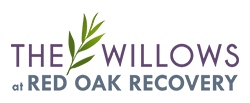Each year, tens of thousands of Americans die from a drug overdose. Drug overdoses claimed an estimated 70,000 US lives in 2017, according to the Center for Disease Control and Prevention. The danger of drug overdoses is becoming more severe due to the development of dangerously powerful drugs like fentanyl. One of the best things you can do to avoid this problem is to educate yourself about drug overdose symptoms. This can help you seek treatment to avoid a fatal overdose and find ways to get the addiction therapy you need.
Understanding the Cause Behind Drug Overdose Symptoms
Learning the reason why overdoses happen can tell you a lot about the underlying cause of common signs of drug overdose. Drugs are substances that alter bodily processes like heart rate, breathing rate, and neurotransmitter reception. When you take a small amount, your body processes the drugs before they can cause damage. However, when you take too much of a substance, it can overwhelm your body. Excessive amounts of drugs can, therefore, make it impossible for your body to manage its necessary functions.
The exact amount of a drug it takes to cause an overdose varies wildly. Things like your body weight, level of tolerance, and individual metabolism can all influence how drugs affect you. One person may overdose on a certain amount of drugs while another who takes the same amount might continue functioning normally. People are particularly likely to end up overdosing if they unknowingly take drugs cut with dangerous substances or if they take their usual dose of drugs after a period of sobriety in a substance abuse treatment center.
How to Identify Overdose
Noticing the signs of a drug overdose can be potentially lifesaving. There are many signs of a drug overdose to look out for, and they can change greatly depending on what drug you have taken. Generally, any difficulty breathing, abnormal heart rate, or change in body temperature should be a cause for concern after you take a drug. Loss of consciousness, seizures, and vomiting are other common overdose symptoms.
If you know what drug a person has taken, it is even easier to spot an overdose since certain types of drugs result in certain symptoms. Depressants are opioids, alcohol, benzodiazepines, and other drugs that affect the central nervous system, so people who abuse these drugs often show signs of confusion when overdosing. These drugs can cause loss of consciousness, clammy skin, vomiting, seizures, and reduced breathing and heart rate when someone takes too much. If a person is taking stimulants, like cocaine or methamphetamine, their heart rate and breathing will speed up instead of slowing down. They may also have intense sweating, chest pains, seizures, dizziness, and loss of consciousness. Stimulant overdose can also lead to aggression, paranoia, or anxiety. Don’t hesitate to reach out for help if you suspect an overdose.
Young women often feel most comfortable in a same-sex therapeutic environment. At The Willows, we offer drug overdose treatment in North Carolina that we designed especially for 18-to-30-year-old women.
Treating Drug Overdose Symptoms
If you think you or someone you know is dealing with a drug overdose, act immediately to get help. Prompt medical treatment can remove excess drugs from the system and keep a person safe from dangerous symptoms like seizures or an inability to breathe. Depending on the drug you take, treatment may include stomach pumping, naloxone injections, or activated charcoal treatments. Without the right treatment, an overdose can be fatal. Remember that doctors are medical providers, not law enforcement, so you do not need to fear legal consequences for seeking drug overdose treatment in North Carolina.
Once the crisis is over, it is important to continue with medical treatment and therapy. Longterm substance abuse treatment can help manage the symptoms of withdrawal and provide you with the tools you need to manage your sobriety.
Recovering from a drug overdose is a great time to get committed to your sobriety. Many people find that a drug overdose can be the wake-up call that they have a problem. At The Willows, we focus on helping women recover from substance abuse disorders. We provide holistic treatment with therapies including clinical therapy, yoga, hiking, and service work to help you heal. Don’t risk an overdose. You can conquer your addiction and take back control of your life. Call 855.773.0614 to find out how we can guide you to recovery.




